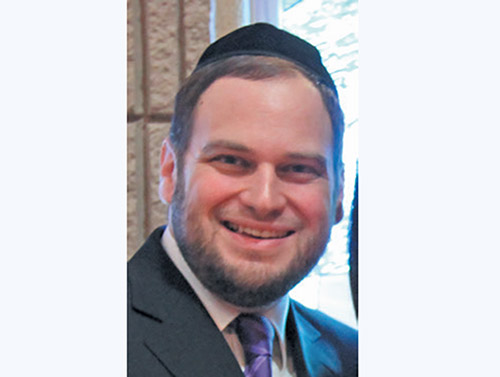
“Flight attendants, please be seated for the next 10 minutes.” Just the words I didn’t want to hear! I was heading home from a trip not long ago, when the pilot came on the speaker system and warned us about the bumpy air that was certain to create an uncomfortable feeling for the passengers on board our flight. The announcement triggered within me a memory from close to 24 years ago.
My mother, z”l, and I were sitting next to each other on a flight from San Diego to New York. My mother had undergone open-heart surgery a week earlier for a very rare condition that was mostly found in autopsies. She sat in a New York hospital for more than a month until doctors were able to figure out her extremely rare diagnosis. The surgery was performed at a hospital in San Diego, since there were only a handful of surgeons in the world who operated on a patient with her condition at that time. With the kindness of Hashem, the surgery was successful. After a short recuperation in San Diego, along with the tremendous chesed of that Jewish community under the leadership of Rabbi Eliezer Langer, we were ready to fly home. I sat next to my mother on the plane. She was very nervous about her wound from the open-heart surgery. The potential of any severe turbulence frightened her as any abrupt movement would cause her great pain. I was nervous for her.
At about two hours into the flight, as we flew in close proximity to the Rocky Mountains, the pilot came on the intercom and told the passengers as well as the flight crew to stay seated with our seat belts fastened, as the next few minutes were going to be rough. I held my mother’s hand as she closed her eyes, and together we recited Tehillim. It was one of the most spiritual moments of my life. I asked Hashem with all of my heart to spare my mother any more pain, as we nervously awaited the first signs of shaking. Minute by minute slowly went by and the flight seemed to continue on its smooth path. Approximately 20 minutes later the captain came on the intercom and said, “Folks, it seems that the choppy air we were expecting never quite developed; it should be a smooth ride the rest of the way. Enjoy the rest of your flight!” I was in disbelief and certain that few others on the plane felt the way we felt. My mother looked at me with a twinkle in her eye and said, “See, Hashem is always listening.” I felt at that moment what the Torah described as “Torat Imecha”—the Torah that one’s mother teaches them. My mother instilled in me at that moment the drive to believe that we can practically experience Hashem’s involvement in our lives.
The lechem hapanim, the showbread, were 12 loaves of bread that were placed on the shulchan, the table in the Mishkan each Shabbat. A miracle existed with these loaves on a regular basis; they remained fresh for the entire week, until they were replaced the next Shabbat with freshly baked loaves. When the kohanim would eat the loaves after they were removed from the Mishkan or the Beit Hamikdash, the bread was still as fresh as it was when it was removed from the oven the previous week. Why was this bread called the lechem hapanim? Panim means face; what connection is there between bread and one’s face? The Imrei Emes, zt”l, explains that one was able to see a reflection of their own panim, face, when looking at this bread. He explains that a person who had faith saw the loaves fresh and smelled their pleasant aroma. However, those who were cynical and lacked faith did not sense the freshness and smell whatsoever. When it comes to faith in general, most of the time we have to have the appropriate glasses on in order to strengthen our connection and believe. If we look for the “hand” of Hashem in our lives, we will most probably find it. If we lack the basis of faith, it may be more difficult for one to see Hashem’s presence in his or her life. Cynicism is commonplace and easy. Faith takes effort and is at times difficult. May we be blessed to see the hand of Hashem in the air up above as well as in our daily lives down here below.
By Rabbi Eliezer Zwickler, LCSW
Rabbi Eliezer Zwickler is rabbi of Congregation AABJ&D in West Orange, New Jersey, and is a licensed clinical social worker in private practice. Rabbi Zwickler can be reached at [email protected].













